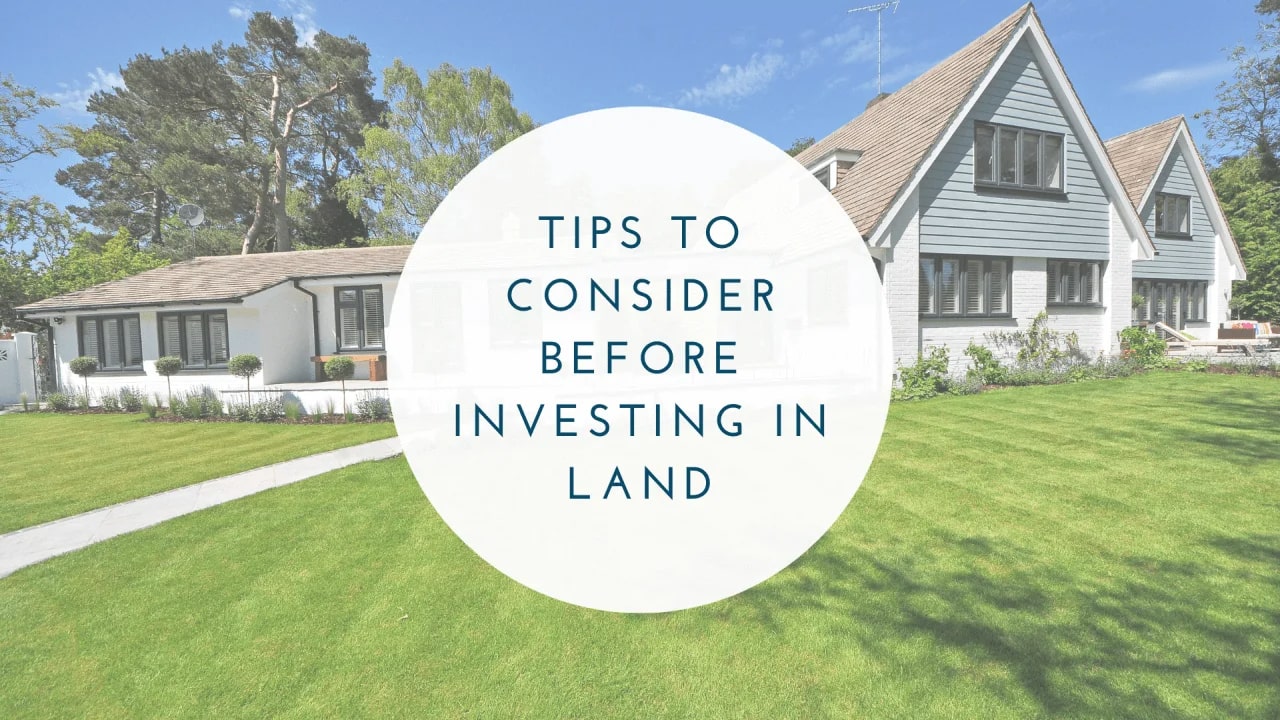A lot of real estate investors will tell you that land is a better investment than property. This may be true, but it’s only going to be true if you know what you’re doing and how to be successful when you’re grabbing land to diversify or grow your investment portfolio.
Here are 10 things you need to know before investing in land.
1. Land is a Long Term Investment
No one is going to get rich quick on their land purchase. You will need the patience required to hold onto your land and allow it to grow in value. It won’t double in value this year or next year. Land may be cheaper than property and it’s a great way to protect yourself from inflation, but you can’t expect to make your money buying and flipping land. This is the ultimate buy and hold investment.
2. Zoning approvals aren’t quick
If you’re planning to build on the land you’re purchasing, plan at least three years to get the zoning approval and permits you may need. You’ll need multiple approvals and the speed of this process will depend on your municipality and your intended use for the land. Expect restrictions and if you want to avoid all this, set your sights on land that’s already zoned or located in an area that welcomes the type of activity you’re planning.
3. Figure out your financing
Finding loans for land can be more difficult than finding loans for a home. You’re not buying a primary residence, and that makes lending riskier for most banks and financial institutions. You should expect to come up with a down payment that’s at least 20 percent, maybe even more. You should also expect higher interest rates. Look for special offers from local and smaller lenders.
4. Educate yourself on easements
If you buy land that requires you to travel across somebody else’s land in order to access it, this is an easement. Invest in a good survey and title search before you buy. You don’t want to build on someone else’s property.
5. Taxes
It may take years to earn any money off the land you buy, but you’ll still have to pay property taxes. This can hurt, so make sure you’re budgeting appropriately or rolling the taxes into your mortgage payment for ease and efficiency. Find out what tax deductions you may be eligible for.
6. There’s always liability
If your land is easily accessed by members of the public, you could be at risk for a lawsuit if someone is injured on it. Put up some “No Trespassing” signs on the property and make sure there aren’t any obvious dangers such as large holes, abandoned equipment, and other features that will deliver instant liability.
7. Vacant land insurance is a good idea
Those risks are no joke, and buying vacant land insurance can help you feel more protected against any potential lawsuits or liability. Costs are lower to insure land than they are for property.
8. Look into public utilities
Common utilities such as electric, water, gas, sewer, and these days - telephone and internet - will be an important part of your development plans. If your land doesn’t have access to one or more of these utilities, you may need some complicated work-arounds.
9. Not all land is accessible by road
Roads seem to be everywhere, but there are actually thousands of acres that have no road access. If your land is surrounded by private properties and there’s no way to get to your land without trespassing, you could find yourself in a sticky situation.
10. Work with the best experts you can find
Before you invest in land, talk to real estate brokers and property managers who have experience identifying, negotiating, and closing land sales. You’ll need some support, even if you’re a real estate investing pro.
We’d be happy to help. Contact us at Wave Property Management.

Wave Property Management is a full-service leasing and management company serving Boise as well as nearby communities such as Meridian, Garden City, Nampa, Mountain Home, and Caldwell. We work with new rental property owners as well as established investors with growing real estate portfolios.



